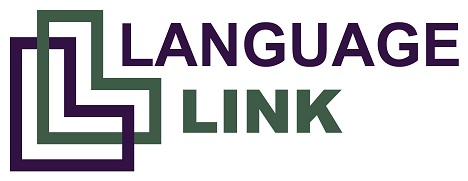Professional Development training

Effective communication is the key to success. ‘Language Link’ provides a variety of Business English and ESP training courses in addition to Professional Development courses. We deliver tailored and comprehensive training which focuses not only on your company’s objectives but also on the individual trainee’s language needs. We are dedicated to producing quality courses which lead to positive goal-orientated results. All courses are also available online. See below for a list of the most popular Professional Development courses and for further information on our website: www.languagelink.ie



Leadership and Communication
Dwight D. Eisenhower said that: “Leadership is the art of getting someone else to do something you want done because he wants to do it.” Effective leadership is therefore about communicating a vision to followers, which followers will then ‘buy into’ and implement. This course will elaborate the various communication strategies, which facilitate this concept of effective leadership. During the course, participants will be required to apply the various leadership communication strategies to practical ‘real-world’ situations through group work and the detailed analysis of relevant case-studies. The aim of this course is to cultivate participants’ critical intelligence so they can adapt their own leadership communication style to meet the requirements of each and every situation in a way that maintains and enhances the motivation and good will of followers, whilst simultaneously securing favourable outcomes for their organisation.
Problem Solving and Decision Making
A problem is anything which deviates from, or causes a deviation from, a standard of optimal performance. Problem-analysis and decision-making are co-extensive, deliberative processes, which centre on an actor’s ability
- to diagnose and classify problems;
- to develop and communicate alternative, workable solutions and
- to implement chosen corrective actions that secure or restore desired levels of efficiency and functionality.
In this highly interactive course, participants will learn the means and ends of problem-solving and decision-making through a mixture of group work, role-playing and the detailed analysis of relevant case studies. The aim of this course is to develop the participants’ ability to identify different types of problems and to engineer and deploy problem-solving strategies that are appropriate to the particularities and organisational context of the situation.
Emotional Intelligence
True intelligence does not consist solely in an individual’s intellectual prowess but also in his ability to apprehend, understand and affect his own emotions and the emotions of others. Emotionally intelligent people are able to
- identify positive and negative emotional traits in themselves and in others;
- adapt their emotions to meet situational requirements and influence others to do the same;
- create sustainable personal and professional relationships based on trust, honesty and empathy, and
- utilize emotions to achieve goals and optimize the performance of individuals / groups.
In this highly interactive course, participants will analyse the operating assumptions and limitations of the different models of emotional intelligence through personality testing, thought experiments and role-playing exercises. The aim of this course is to provide participants with the means to measure and enhance their level of emotional intelligence so they can deploy context-specific communicative strategies in both their personal and professional lives.
Crisis Management
A crisis is an event which threatens the reputational standing, financial security, or existence of a company or an organization. Crisis managers must possess particular leadership and communication skills in order to effectively detect, contain and prevent different types of internal and external crisis. A crisis manager must also devise and deploy a business continuity plan which
- incorporates the lessons learned during previous crises;
- implements actions to secure sufficient levels of organizational functionality during present crises and
- minimises organizational exposure to future crises.
The aim of this course is to provide participants with an understanding of the means and ends of crisis management through group work and the detailed analysis of relevant case studies, and to provide them with context-specific crisis management strategies so they can identify, mitigate and / or resolve the causes and effects of harmful crisis situations.
Other courses we offer include
Conflict Resolution
Negotiation
Medical Ethics
Business Ethics
Environmental Ethics
Critical thinking
Individually tailored courses
A specifically tailored course is the perfect solution if you want to ensure that the course content perfectly matches your language learning needs. The content will be designed to match your learning objectives. Please contact for further information: www.languagelink.ie










